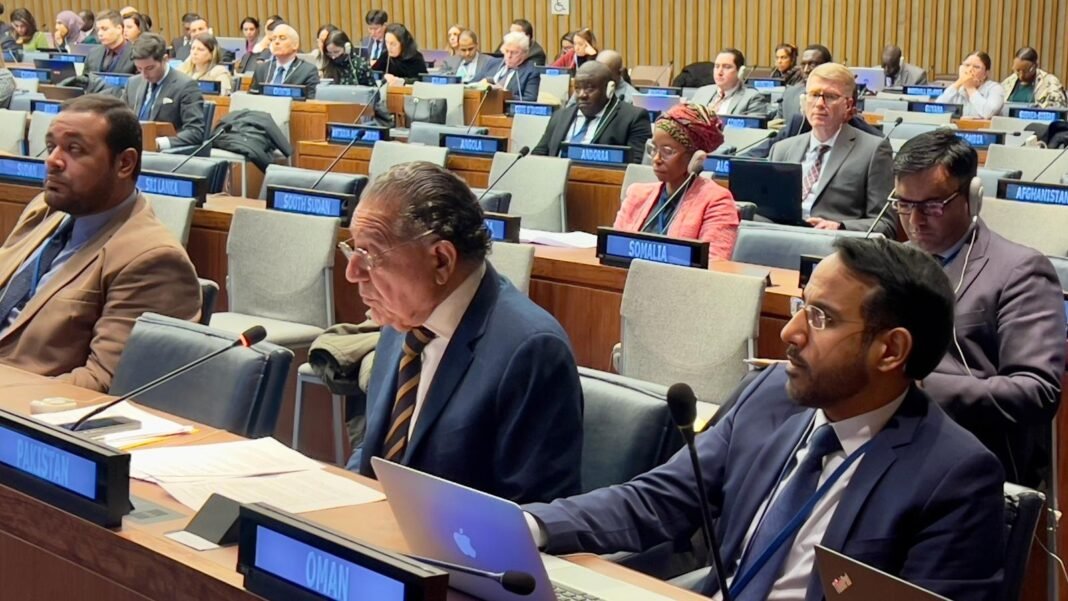New York, 17 February 2024(TDI): On February 15, Pakistan voiced its opposition to the United Nations Security Council (UNSC) Reform Model.
In a statement addressing the proposed UN Security Council reform model by the L.69 Group, Pakistan’s Ambassador, Munir Akram, raised concerns about the potential consequences of expanding the Council’s permanent and non-permanent membership.
Akram emphasized the likelihood of deepening the paralysis within the Council and warned against the exacerbation of inequity in representation.
As a proponent of democratic principles, Ambassador Akram suggested that any country aspiring to enhance its presence on the UNSC should pursue such goals through the democratic process of periodic elections by the General Assembly.
L.69 Group Advocates for UNSC Reform Model
The L.69 Group of Developing Countries, comprising 32 nations from Africa, Latin America and the Caribbean, Asia and the Pacific, is steadfast in its commitment to initiating enduring and inclusive reforms within the UN Security Council.
Central to the group’s agenda is the conviction that expanding both permanent and non-permanent membership categories within the Security Council is essential for reflecting modern global dynamics.
This expansion aims to foster a more accountable, representative, transparent, and notably, a relevant Security Council in today’s world.
Pakistan’s opposition to the UN Security Council reform model proposed by the L.69 Group reflects its commitment to upholding democratic principles and promoting equitable representation within international institutions.
Ambassador Akram’s Insights
Drawing from his experience as the President of the Human Rights Council, Ambassador Munir Akram shared valuable insights during the discussion.
He reflected on the transformation of the Commission into the Human Rights Council and acknowledged the improvements made over time.
However, he highlighted persistent challenges, including issues of credibility, inaction, and selectivity.
Ambassador Akram noted that while the Human Rights Council has made strides in geographical representation, there remains a discernible slant in membership composition.
He criticized the Council’s perceived selectivity, citing instances where geopolitical allies receive preferential treatment while gross human rights violations in certain regions are met with silence.
Moreover, Ambassador Akram emphasized the disproportionate focus on civil and political rights over economic and social rights within the Council’s agenda.
Selective Focus
Additionally, recent events have raised concerns regarding the selectivity in addressing human rights violations within the UN Security Council.
Despite reports issued by the High Commission of Human Rights highlighting egregious violations, there has been a deafening silence from prominent advocates of human rights.
The disproportionate focus on certain regions, notably highlighted by the absence of special sessions on critical issues like Gaza, underscores the need for a more balanced approach.
With a majority of special sessions directed towards developing countries and specific country mandates, questions arise regarding the council’s impartiality
He underscored the need for a balanced approach and advocated for the adoption of the Convention on the Rights to Development.
Also Read: Ambassador Munir Akram addresses UNSC on climate impact
Furthermore, in addressing the workload and mandate of the Human Rights Council, Ambassador Akram proposed a rationalization strategy.
He suggested redistributing certain responsibilities to specialized agencies and the General Assembly’s Third Committee to mitigate duplication and streamline operations.
Furthermore, Ambassador Akram rejected proposals to elevate the Human Rights Council to an independent body, cautioning against potential repercussions for the United Nations’ integrity.
Instead, he advocated for strengthening cooperation, political assistance, and capacity-building initiatives within the existing framework.
Ambassador Munir Akram’s insights from his tenure at the Human Rights Council underscore the importance of addressing challenges such as selectivity and workload rationalization to enhance the Council’s effectiveness in promoting human rights globally.
The writer is a dedicated graduate student pursuing an MPhil in DSS from NDU Islamabad.



